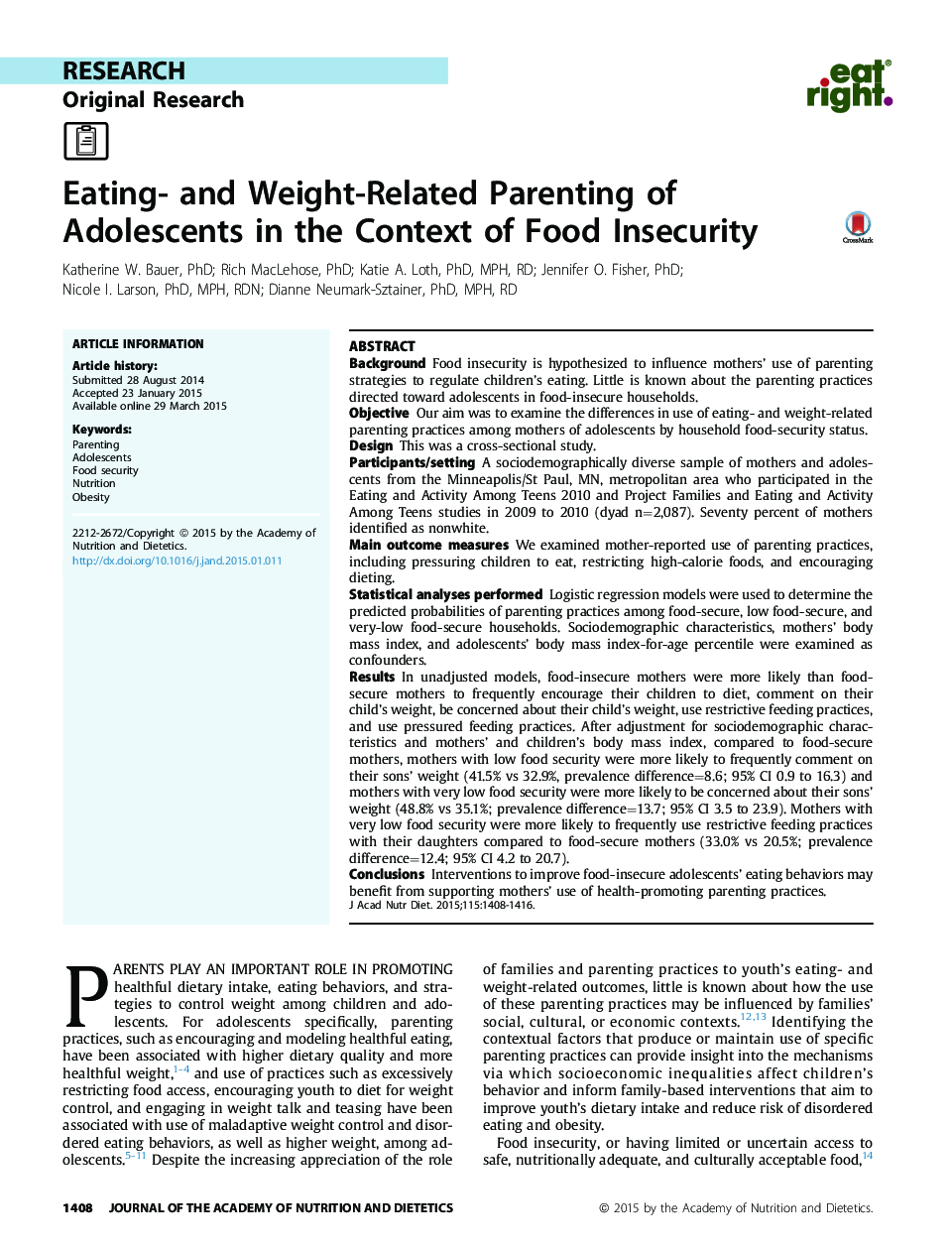| کد مقاله | کد نشریه | سال انتشار | مقاله انگلیسی | نسخه تمام متن |
|---|---|---|---|---|
| 2656806 | 1564045 | 2015 | 9 صفحه PDF | دانلود رایگان |
BackgroundFood insecurity is hypothesized to influence mothers’ use of parenting strategies to regulate children’s eating. Little is known about the parenting practices directed toward adolescents in food-insecure households.ObjectiveOur aim was to examine the differences in use of eating- and weight-related parenting practices among mothers of adolescents by household food-security status.DesignThis was a cross-sectional study.Participants/settingA sociodemographically diverse sample of mothers and adolescents from the Minneapolis/St Paul, MN, metropolitan area who participated in the Eating and Activity Among Teens 2010 and Project Families and Eating and Activity Among Teens studies in 2009 to 2010 (dyad n=2,087). Seventy percent of mothers identified as nonwhite.Main outcome measuresWe examined mother-reported use of parenting practices, including pressuring children to eat, restricting high-calorie foods, and encouraging dieting.Statistical analyses performedLogistic regression models were used to determine the predicted probabilities of parenting practices among food-secure, low food-secure, and very-low food-secure households. Sociodemographic characteristics, mothers’ body mass index, and adolescents’ body mass index-for-age percentile were examined as confounders.ResultsIn unadjusted models, food-insecure mothers were more likely than food-secure mothers to frequently encourage their children to diet, comment on their child’s weight, be concerned about their child’s weight, use restrictive feeding practices, and use pressured feeding practices. After adjustment for sociodemographic characteristics and mothers’ and children’s body mass index, compared to food-secure mothers, mothers with low food security were more likely to frequently comment on their sons’ weight (41.5% vs 32.9%, prevalence difference=8.6; 95% CI 0.9 to 16.3) and mothers with very low food security were more likely to be concerned about their sons’ weight (48.8% vs 35.1%; prevalence difference=13.7; 95% CI 3.5 to 23.9). Mothers with very low food security were more likely to frequently use restrictive feeding practices with their daughters compared to food-secure mothers (33.0% vs 20.5%; prevalence difference=12.4; 95% CI 4.2 to 20.7).ConclusionsInterventions to improve food-insecure adolescents’ eating behaviors may benefit from supporting mothers’ use of health-promoting parenting practices.
Journal: Journal of the Academy of Nutrition and Dietetics - Volume 115, Issue 9, September 2015, Pages 1408–1416
